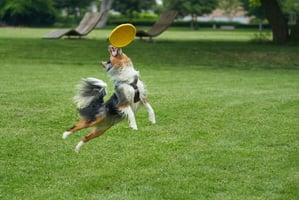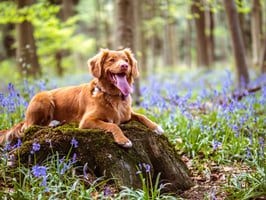Training your Chesapeake Bay Retriever can be a rewarding experience for both you and your pup....
Bichon Frise Training: The Essential Guide
Training a Bichon Frise can be a difficult challenge, but with the right knowledge, you can help your pup become the best-behaved pup on the block. This guide will provide you with all the information you need to know about Bichon Frise training, including how to get started, what to expect, and how to keep your pup motivated. Read on to find out more about Bichon Frise training!
Getting Started With Bichon Frise Training
Before you get started with Bichon Frise training, it’s important to understand the basics of canine learning. Dogs learn best through positive reinforcement, which means rewarding desirable behavior with treats or praise. It’s also important to be consistent with your commands and to use the same words each time. When you’re ready to begin, start with basic commands such as sit, stay, and come.
When you’re teaching your pup a new command, it’s important to be patient and consistent. Start with a few repetitions and gradually increase the number as your pup begins to understand what you’re asking. If your pup is having trouble understanding a command, break it down into smaller steps and reward your pup for each step they take towards understanding it.
It’s also important to remember that training should be fun for both you and your pup. If your pup is getting bored or frustrated, take a break and come back to it later. Training should be a positive experience for both of you.
What to Expect From Bichon Frise Training
When you’re training a Bichon Frise, it’s important to have realistic expectations. Bichons are intelligent and eager to please, but they can also be stubborn and independent. It’s important to remember that training takes time and patience.
It’s also important to keep in mind that Bichons can be sensitive to loud noises and sudden movements. When you’re training your pup, be sure to speak calmly and move slowly. If your pup is getting overwhelmed, take a break and come back to it later.
It’s also important to remember that Bichons need regular exercise and mental stimulation. Training is a great way to provide both of these things. In addition to training, be sure to take your pup on regular walks, play interactive games, and provide plenty of toys to keep them entertained.
How to Keep Your Bichon Frise Motivated During Training
When it comes to Bichon Frise training, rewards are key. Your pup needs to be rewarded for good behavior in order to stay motivated. Treats are a great way to reward your pup for a job well done, but it’s important to make sure they’re healthy and appropriate for your pup’s size.
In addition to treats, praise is also a great way to reward your pup. Make sure to give verbal praise and physical affection when your pup does something right. This will help to reinforce the desired behavior and keep your pup motivated.
It’s also important to keep training sessions short and fun. If your pup is getting bored or frustrated, take a break and come back to it later. Training should be a positive experience for both of you.
Common Mistakes to Avoid When Training a Bichon Frise
When it comes to Bichon Frise training, it’s important to avoid common mistakes. One of the most common mistakes is using punishment to try to train your pup. Punishment can be counterproductive and can lead to fear and aggression. Instead, focus on positive reinforcement and rewarding good behavior.
Another common mistake is expecting too much too soon. Training takes time and patience. Start with basic commands and gradually increase the complexity as your pup gains more experience.
It’s also important to avoid getting frustrated. Training should be a positive experience for both you and your pup. If you’re feeling frustrated, take a break and come back to it later.
Conclusion
Training a Bichon Frise can be a difficult challenge, but with the right knowledge and dedication, you can help your pup become the best-behaved pup on the block. This guide has provided you with all the information you need to know about Bichon Frise training, including how to get started, what to expect, and how to keep your pup motivated. With patience and consistency, you and your pup can have a successful training experience!



